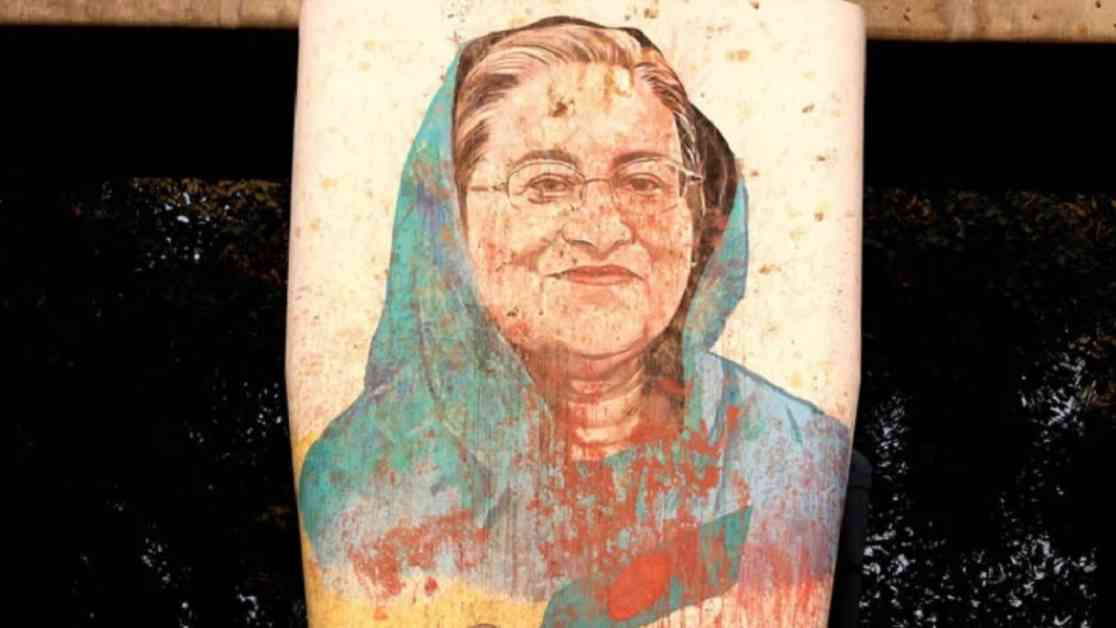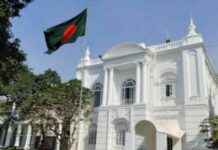An arrest warrant has been issued for five individuals, including ousted prime minister Sheikh Hasina, in connection to a case involving genocide at Shapla Chattar in the capital on May 5, 2013. Former inspector general of police Benazir Ahmed, former home minister Mohiuddin Khan Alamgir, former IGP Hasan Mahmud Khandaker, and Imran H Sarker are also named in the warrant. The decision was made by a three-member tribunal led by Justice Md Golam Mortuza Mozumder, following a plea from the prosecution.
The International Crimes Tribunal (ICT) took this significant step after Chief prosecutor Muhammad Tajul Islam and prosecutor Mizanul Islam presented their arguments, with other prosecutors also present at the time. The prosecution highlighted that four additional accused individuals, including former state minister for home affairs Shamsul Haque Tuku, former IGP Shahidul Haque, Major General (sacked) Ziaul Ahsan, and former police official Mollah Nazrul Islam, have already been arrested and are currently in custody.
The Allegations and Accusations Unveiled
The case, brought to light by a complaint filed by Hefazat-E-Islam with the ICT chief prosecutor’s office on November 27, 2024, implicates a total of 50 individuals, with Sheikh Hasina among the accused. The gravity of the charges and the high-profile nature of the individuals involved have drawn widespread attention and sparked debate across the nation.
This development serves as a stark reminder of the complexities and challenges that arise in dealing with cases of such magnitude. The legal proceedings and investigations surrounding these allegations are expected to unfold with intense scrutiny and public interest. The implications of these accusations extend far beyond the individuals directly involved, impacting the political landscape and societal dynamics of the country as a whole.
Legal Implications and Societal Impact
The issuance of arrest warrants against prominent figures like Sheikh Hasina and others underscores the importance of upholding justice and accountability at all levels of society. The legal process that will follow in the wake of these developments is likely to shape the course of future proceedings and set a precedent for addressing similar cases in the future. As the nation grapples with the aftermath of these allegations, the need for transparency, fairness, and adherence to due process becomes ever more paramount.
In the midst of these legal and political maneuvers, the broader implications on societal trust, governance, and public perception cannot be understated. The ripple effects of such high-profile cases reverberate far beyond the courtroom, influencing public opinion, institutional credibility, and the overall fabric of society. The unfolding narrative surrounding these allegations will undoubtedly continue to captivate the nation and spark discussions on justice, ethics, and the rule of law.
As the legal saga unfolds and the accused individuals navigate the intricacies of the judicial system, the eyes of the nation remain fixed on the outcome of these developments. The pursuit of truth, justice, and accountability in the face of grave allegations serves as a testament to the resilience and resolve of a society committed to upholding the principles of fairness and integrity. The road ahead may be fraught with challenges and uncertainties, but the pursuit of justice must prevail to ensure a just and equitable society for all.
























